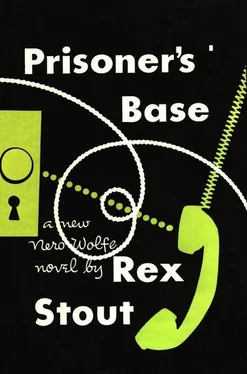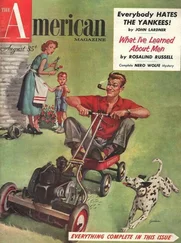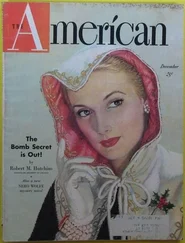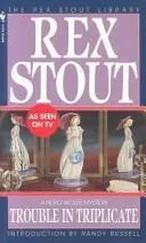“So did I, and what did I get? What do you want? That’s twice, so I have one coming. You asked me three times.”
“I could break your neck, Goodwin!”
“Then you’ll never get in. I use my neck. What do you want? Now we’re even.”
A voice came at me from behind. “What is all this uproar?”
Wolfe had emerged from the office and was advancing, which wasn’t as impetuous as it might have seemed. It was close to dinnertime, and he would soon have had to mobilize himself anyhow. Fritz trotted off toward the kitchen, where something was probably reaching its climax.
I told Wolfe, “It’s Andy Fomos, who ruined a shoe for me yesterday.” I told the crack, “In ten seconds we close the door the rest of the way, and don’t think we can’t.”
“What you told me yesterday!” he bellowed.
“What? Do you mean about Priscilla Eads going to make your wife a director of Softdown?”
“Yes! I was thinking about it, and a little while ago I phoned that Mrs. Jaffee. She wouldn’t say much, but she told me who you are and said I should see you. If that woman was going to make my wife an important thing like a director there must have been some good reason, and I want you to tell me what it was. She must have owed my wife something big, and I want to know what it was, because if it belongs to me I want it. My wife would have wanted me to have it. And you must know about it, or why did you come to see me?”
I turned to Wolfe. “When you send me out for objects you get ‘em, huh? This one completes the order. Do you want it?”
He was standing with his gaze focused through the one-way glass at the visitor. Fomos was not quite as impressive draped as he had been in shorts, but he was quite a figure. Wolfe grunted. “If he came this evening would he be uncontrollable?”
“Not if I have tools handy, and I will.”
“Invite him.”
I turned to the crack. “Listen, Junior. Some people are coming at nine o’clock this evening to talk the whole thing over, and we might get around to what’s biting you, why your wife was to be made a director, or we might not. You may come if you’ll behave yourself. If you don’t behave you won’t stay.”
“I won’t wait! I want in now! I want—”
“Oh, can it! You heard me. We’re now going to eat dinner, and the thought of you camped on the stoop would annoy us. If you’re down on the sidewalk by the time I count ten I’ll let you in at nine o’clock. If not, not. One, two, three, four, five, six, seven, eight...”
He had made it. Wolfe was headed for the dining room. I went to the kitchen and told Fritz, “One more. There will be ten. Counting Mr. Wolfe and me, an even dozen. Counting you, thirteen.”
“Then we will not count me,” he said firmly.
I was mildly peeved at Nathaniel Parker. It had been agreed that he and Mrs. Jaffee would come fifteen or twenty minutes early for a policy caucus, and instead of that they were the last to arrive, ten minutes late. Presumably, judging from their manner, they had dined together, and there was no law against that; and also presumably Parker thought a caucus not essential since Wolfe would take charge anyway; but their tardiness made it harder for me. I had no help from Wolfe, since it was his custom, when a gathering was expected, to stay in the kitchen until everyone had assembled.
By the time Parker and Sarah Jaffee showed up the air had got a little thick. The Softdown quintet had not come in a body, but had immediately formed one, collecting over in the corner by the couch and conversing in undertones. When I introduced Eric Hagh and his attorney, Irby, to them, there was no handshaking — for one thing the Softdown group was too surprised. I offered no explanation of Irby’s and Hagh’s presence, and wasn’t asked for one. I did offer drinks, but nobody wanted any. Then Andy Fomos came, and after I had introduced and identified him he mixed himself a long one of white wine and soda and stood apart, sipping his drink and glowering around as if deciding which neck to break first. None but mine, and maybe Hagh’s, would have been any problem for him. As for me, I had told Wolfe I would have tools handy, and I had — a snub-nosed Farger on my hip and a rubber silencer in my jacket pocket. It didn’t seem likely that Wolfe could bring it to a boil at that meeting, but if he did there was no telling who would start what, and I had already had a shoe scuffed.
When Fritz ushered Parker and Sarah Jaffee into the office she stopped just inside the door and looked around. It was the first time I had seen her in artificial light, and she was an attractive sight, with her face a little flushed, in a white summer dress and white slippers, and with a little white bag dangling from her hand. Perry Helmar called her name and started for her, but I intercepted him and got to her and Parker, and claimed attention to pronounce names. Of course none of them had ever seen Parker before, and Irby and Hagh had never seen Sarah Jaffee. Hagh kissed her hand. He had not kissed Viola Duday’s hand. Apparently she thought it wasn’t a bad idea, from the way she took it, and I admit he was more presentable than he had been that afternoon, now that he was combed and shaved and in a clean white suit and shoes. I maneuvered Perry Helmar into the red leather chair, got the others disposed according to plan, and went to Wolfe’s desk and pushed the button, one long and two short.
Wolfe marched in. On account of the crowd, he had to bear right to the wall and follow it to his chair. He stood.
“Archie?” he said.
I identified the four he had never seen. “Miss Viola Duday, formerly assistant to the president of Softdown, Incorporated, and now assistant secretary. Jay L. Brucker, president. Bernard Quest, been with the business sixty-two years, sales manager for thirty-four and vice-president for twenty-nine. Oliver Pitkin, secretary and treasurer of the corporation.”
Wolfe inclined his head a full half an inch, for him an elaborate bow, and sat. Before he got satisfactorily adjusted in his chair, which with him took some engineering, Perry Helmar spoke.
“I have prepared a statement,” he announced, “which I would like to read.” His square jaw was jutting beyond the call of duty. He held a paper in his hand.
“How long is it?” Wolfe asked him.
“Three or four minutes.”
“Go ahead.”
Helmar adjusted his metal-rimmed glasses, lifted the paper to range, and read:
“Statement by Perry Helmar, June twenty-sixth, nineteen fifty-two. Speaking for myself and of my knowledge, I challenge the propriety of participation by the private detective named Nero Wolfe in any discussion of the affairs of Priscilla Eads, deceased, or of any matters relating to her, including her death. I base this challenge on the fact that the said Nero Wolfe, by his concealment from the undersigned of the presence in his house, on June twenty-third, nineteen fifty-two, of the said Priscilla Eads, and by his gross and premeditated deception of the undersigned, contributed to her peril and thereby became to a considerable degree responsible for her death by violence. The full details of his deception have been supplied to the District Attorney by me in a signed statement, and a copy of that statement is attached hereto in support of this challenge. I contend that Nero Wolfe is unfit and unworthy to share in any examination of any matters connected with Priscilla Eads.
“Speaking for myself and my four associates, Bernard Quest, Jay L. Brucker, Oliver Pitkin, and Viola Duday, after discussion among us and full agreement, we denounced the said Nero Wolfe for his instigation of an unwarranted attack upon us by Mrs. Sarah Jaffee. We declare that said instigation was prompted by malice, and that the threat of legal action on behalf of Mrs. Jaffee is an unjustified, unprovoked, and reprehensible attempt at coercion. We note that Counselor Nathaniel Parker, who has in the past been associated with Nero Wolfe in many matters, is acting for Mrs. Jaffee, and regard that fact as significant and indicative of the nature of this attempt at coercion, and we demand the right to interview Mrs. Jaffee privately before entering into any discussion with Counselor Parker, and particularly any discussion to which Nero Wolfe is a party.”
Читать дальше












